Business
2016 Budget: Finance Minister defends government’s deficit financing choices
Published
10 years agoon
By
Olu Emmanuel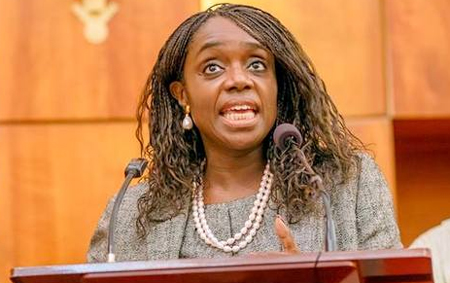
By Chioma Obinagwam
Pandemonium has been stirred among Nigerians regarding government’s choices at financing the 2016 N2.22 trillion budget deficits.
The deficit, according to the budget, will be financed by a combination of domestic borrowing of N984 billion, and foreign borrowing of N900 billion, in total N1.84 trillion.
What the budget entails:
Nigeria’s president Muhammadu Buhari had on December 22, 2015, after a protracted suspense, presented a budget of N6.08 trillion for 2016 to a joint session of the Senate and House of Representative.
The budget is based on a crude oil benchmark price of $38 per barrel and a production estimate of 2.2 million barrels per day for 2016.
A breakdown of the budget showed that Gross Domestic Product(GDP) Growth Rate Projection was put at 4.37 per cent.
More so, Revenue Projection stood at N3.86 trillion; deficit settled at N2.22 trillion, which is an equivalent to 2.16 per cent of Nigeria’s GDP, where as Oil Related Revenues was put at N820 billion.
The budget further revealed that Non-oil Revenues would generate 1.45 trillion even as
Projected Independent Revenues settled at N1.51 trillion.
This time, Capital Expenditure is expected to gulp N1.8 trillion, representing 30 per cent of total budget while Non-debt Recurrent Expenditure sums up to 2.65 trillion.
However, the president disclosed that there is a proposed 9 per cent reduction in non-debt recurrent expenditure, from N2.59 trillion in the 2015 budget to N2.35 trillion in 2016.
“The budgeted N300 billion for Special Intervention Programs, takes the total amount for non-debt recurrent expenditure to N2.65 trillion,” the budget revealed.
Government’s defence:
A significant number of Nigerians have frowned at the preference of government’s borrowing(particularly the foreign borrowing) in financing the budget deficit.
These arguments bother mostly on high debt financing which has constrained the economy over the years.
They made suggestions regarding alternative means of financing the deficit aside foreign borrowings.
Some of the suggestions include increasing taxes, like the Value Added Tax(VAT), monies recovered from embezzled funds, reduction of lawmakers salaries, among other options.
Most recently, the Chief Executive Officer(CEO), Nigerian Stock Exchange(NSE), Mr. Oscar Onyema, said that the Nigerian capital market has the capacity to finance the entire N2.22 trillion deficit.
Nevertheless, the Minister of Finance, Kemi Adeosun was quick to clear the air of confusion brewing from the budget deficit financing.
She noted that the purpose for borrowing is very key in the present economic circumstance.
The Minister added that borrowing to stimulate an ailing economy should be commendable as in the case of Nigeria.
Adeosun, however, said that borrowing can be frowned at if it is for luxury purpose considering the present economic situation.
The Minister added that Oil is less than 10 per cent of the country’s GDP, hence the need to rely on other sources for financing.
Reacting to panic borne out of the high debt servicing status of the country, she noted that the country’s debt to recurrent ratio is high because it is in the short term but if in the long-term, it is low.
“The debt to recurrent ratio is high because it is short term. We are rescheduling the debts increasing the revenue.”
“We should also note that our debt to GDP ratio is lower than America’s at 14 per cent.
We are also diversifying our borrowings to give room corporates to borrow from the domestic market. The biggest borrower is the government. Government should not be competing with the companies and the Domestic markets,” she explained.
She noted that the reason government is not looking at increasing taxes is due to the low level of tax compliance in the country.
“Our Tax compliance is less than 20 per cent. If we increase the tax, we will scare people away from complying,” she argued.
Adeosun also disclosed that it was part of government’s agenda to cut the tax rates of small businesses, geared at stimulating economic growth.
Speaking during an interview on 2016 appropriation bill, she said: “The message going through governments is to cut down their spending in terms cost of running their government, traveling, hospitality etc.
We set-up an Efficiency Unit to look into these issues. The efficiency unit is doing a great job. The results we are having is amazing.”
“We discovered that we spend more money on travels than our roads and we spend more money on hospitality than on our health system,” she disclosed.
The Minister also reacted to concerns on the N5000 stipend mapped out for the unemployed.
“We should understand that the N5000 programme is phased. Since, it is phased it will be subject to review in the long run. Any society that doesn’t take care of the vulnerable is increasing her problems,” she revealed.
She noted that the strong points of government’s agenda in the year under review is hinged on empowering those at the lower tier, addressing unemployment and security situation as well as blocking leakages.
Experts’ opinion:
The 2016 budget deficit financing has become quite topical in the country as financial experts were also caught up in the web of the debate.
Mr. Tilewa Adebajo, Financial expert, while reacting to the financing options said: “It is important to put in place the kind of buffers needed to forestall the kind of shocks witnessed financially as a result of the sharp drop in oil prices.”
He noted that the panic from the deficit would not have been necessary if the government had put in place enough buffers, for instance beefing up the country’s external the point where it would be able to absorb enough financial shocks for a longer period.
He noted that although the Minister cited Nigeria’s debt to GDP ratio to be lower than that of the United States of America(USA), but noted that America spends very little on debt servicing.
“Agreed that the comparison you made between the United States of America and Nigeria is true that our debt to GDP ratio is lower than America’s at 14 per cent but in Nigeria, we spend about 35 per cent on debt service but America spends less than 8 per cent on debt servicing. Our debt service levels are too high and the cost of servicing debt is too high,” he lamented.
Mr. Adebajo recommended the establishment of a Treasury Management ofice to manage issues and challenges associated with the Treasury Single Account(TSA), which should be made up of experienced bankers and other financial professionals.
He also stated the imperatives of harmonising Nigeria’s debt policy with its fiscal policy.
He said: “The harmonisation of the debt policy, the fiscal policy as well as the monetary policy is important. The state of the Naira(Nigeria’s currency) and the issues that bother on Forex is matter of great concern to the economy. Minister of Finance is not the person to really address this issue. The Central Bank of Nigeria (CBN) needs to make a pronouncement on Forex. The CBN governor needs to suppress volatility and restore confidence to the system.”
He said: “In terms of stimulating growth, I think the N2.2 trillion deficit is still fuzzy.”
Corroborating, Professor Ode Ojowu, who is a former Chief Economic Adviser to the President said that there was need for a cordination between the fiscal and monetary.
“The fiscal policy is supposed to be the senior partner of monetary policy. The truth is that we have to spend out of the problem. If we borrow, it has to be for a particular project,” the Professor said.
Notwithstanding the panic from various quarters regarding government’s borrowing and its attendant impacts on the economy, there is no gainsaying that borrowing is critical in stimulating the economy positively, especially in this austere times.
You may like


Appeal Court nullifies Emefiele’s asset forfeiture, Orders retrial


Naira gains 1.28% in official market in May amid oil price risks, currency volatility
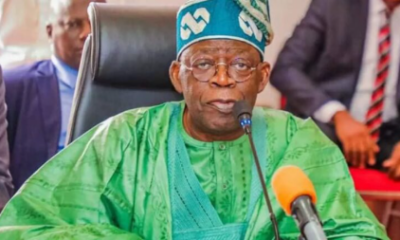

Tinubu: Diaspora APC chieftain tasks local banks on reforms
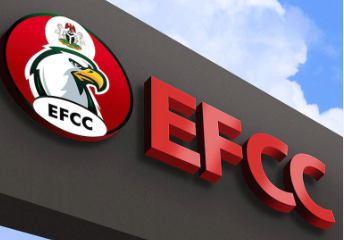

Alleged corruption: EFCC witness details wow Emefiele allegedly received $17.1 million in cash
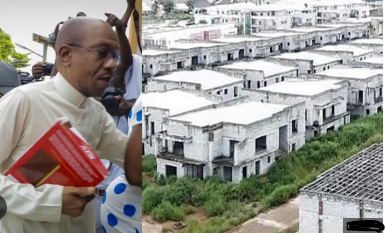

FG to auction 753 housing units forfeited by Ex-CBN Gov. Emefiele in Abuja
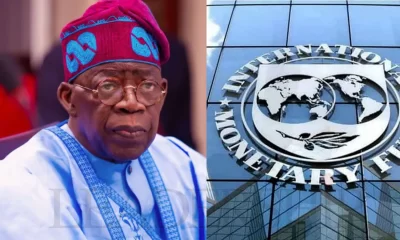

Nigeria’s debt rises to N74.38trn, $44.9bn despite IMF loan repayment
Trending

 Entertainment1 week ago
Entertainment1 week agoSinger Simi faces backlash after TikToker admits to false rape allegation

 Entertainment5 days ago
Entertainment5 days agoSimi addresses resurfaced 2012 tweets amid online backlash

 Comments and Issues1 week ago
Comments and Issues1 week agoNigeria’s Declining Oil Output and Soaring Foreign Portfolio Investment Inflow

 Comments and Issues1 week ago
Comments and Issues1 week agoEx-prince Andrew’s arrest, lessons for Nigeria

 Health7 days ago
Health7 days agoSCFN, LUTH introduce bone marrow transplants as curative treatment for sickle cell

 Business1 week ago
Business1 week agoPENGASSAN warns Tinubu’s executive order on oil revenues could jeopardise 4,000 jobs

 Comments and Issues1 week ago
Comments and Issues1 week agoThe Seyi Tinubu’s jellof rice, loaves of bread

 Health3 days ago
Health3 days agoDeclassified CIA memo explored concealing mind-control drugs in vaccines

